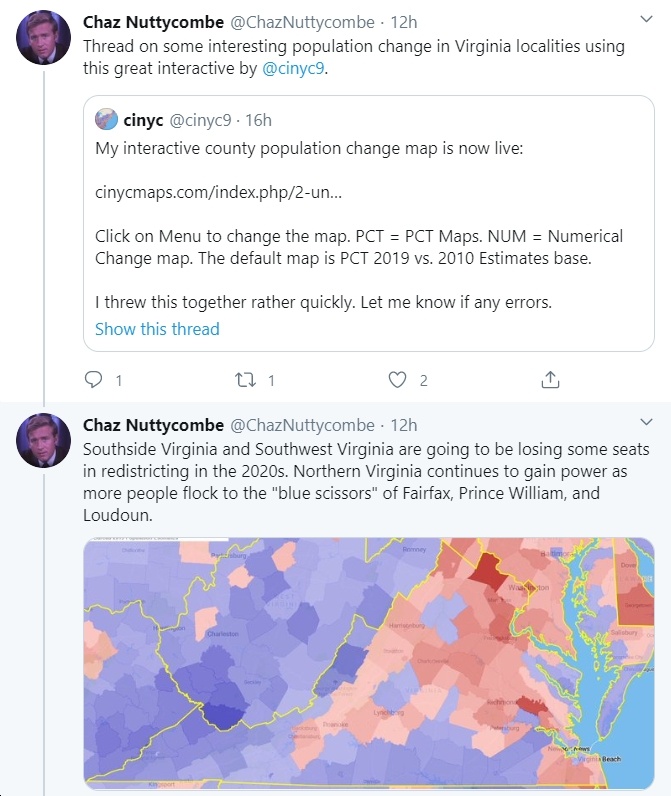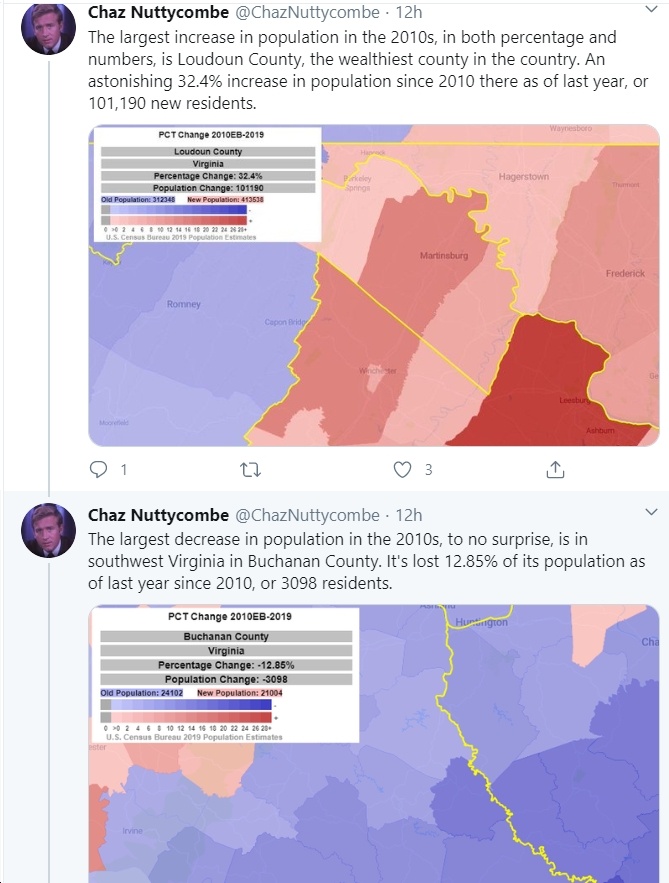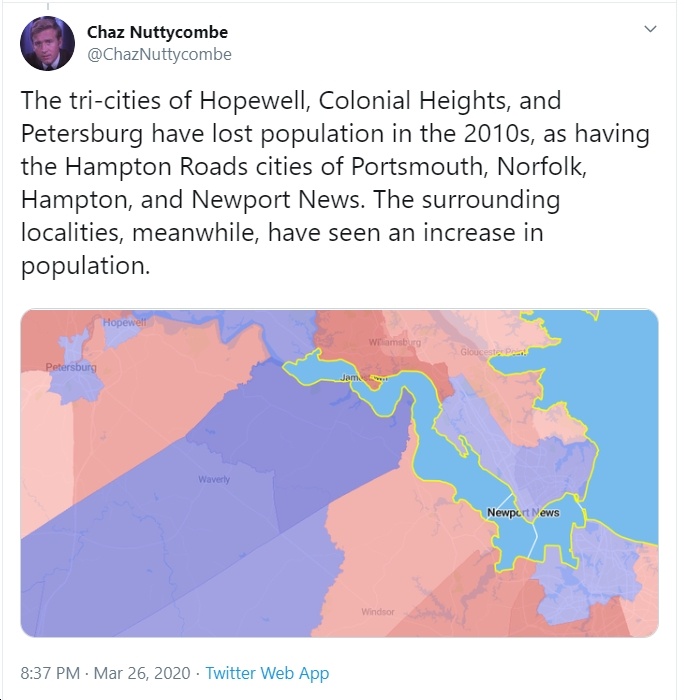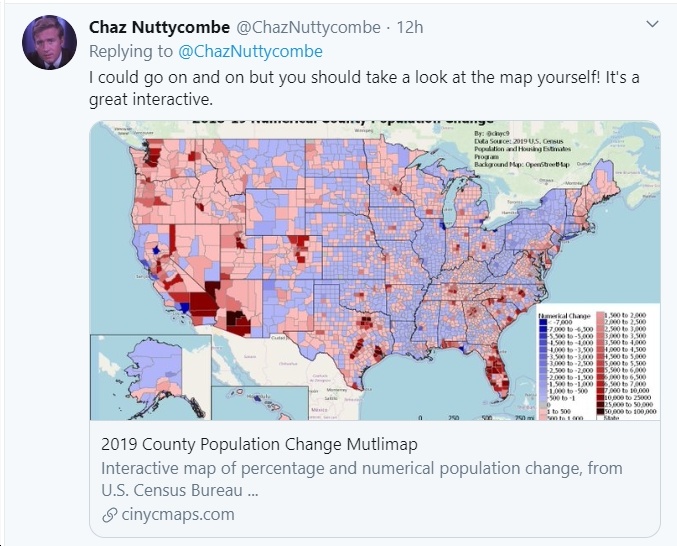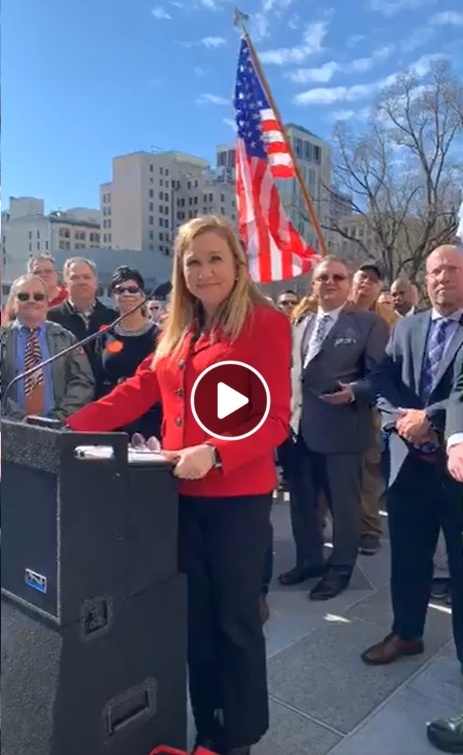With everything going on these days, it’s not easy to concentrate on – or even care much about – upcoming elections in 2020, let alone in 2021. Fortunately, there are hard-core political analysts like Chaz Nuttycombe who are still on the case! For instance, see below for two Twitter threads from yesterday, the first on Virginia’s 75th House of Delegates district and the second on changes in population and political representation in Virginia coming after the 2020 Census and 2021 redistricting.
- On the 75th House of Delegates district, note that it’s been represented by Democrat Roslyn Tyler since 2005, and also that Tyler had either been unopposed or won reelection easily from 2007 to 2017. Then, last November, despite a strong election for Virginia House of Delegates Democrats overall, Tyler *barely* hung on to her seat, edging out her Republican oppponent (Otto Wachsmann) by a 50.98%-48.89% margin.
- Also note that HD-75 went for Hillary Clinton by 10 points in 2016, Ralph Northam by 5 points in 2017 and Tim Kaine by 13 points in 2018.
- So how did Tyler almost lose last November? According to Chaz Nuttycombe, the key is “population loss in the district localities, as shown in this map by @cinyc9″ (see below). Also, a problem for next year is that “prisoners won’t be counted by where they’re imprisoned in Virginia, it’ll be by their previous address. Roz Tyler’s district has 5 prisons,” with a population of 9,306 right there. Plus, Chaz adds, “The localities in Tyler’s district that aren’t split (Brunswick, Emporia, Greensville, Sussex, Southampton, Franklin) have lost 5,147 in population, according to @cinyc9‘s map. So that’s a whopping loss of 14,453 alone.” Also note: “Brunswick, Emporia, Greensville, Sussex, and Franklin are all heavily African-American, usually Democratic-voting localities (Sussex voted for a Republican last year over Tyler in her re-election bid). Southampton is a red county.”
- Tyler seems to have reacted to this political threat by…not changing her voting pattern much, really. Thus, in the 2019 VAPLAN scorecard, Tyler was the third-least-progressive Democrat in the House of Delegates, with a score of 0.545; in the 2020 VAPLAN scorecard, Tyler was the fifth-least-progressive Democrat in the House of Delegates, with a score of 0.759. Most strikingly, Tyler voted against a series of gun control bills. We’ll see if that makes any difference in her reelection campaign next year, but I’d guess that it won’t, because as Professor Rachel Bitecofer has explained very well, voters today are pretty much locked in to “negative partisanship” and aren’t likely to be swayed by a legislator’s voting record.
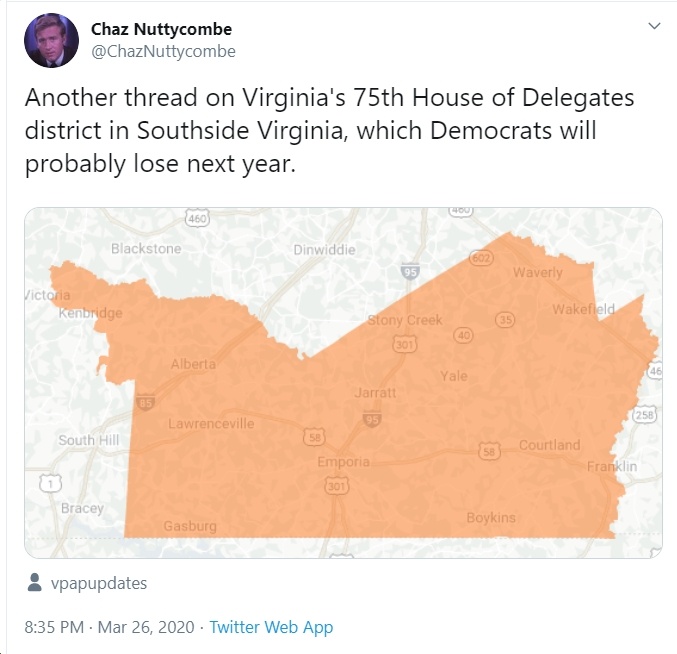
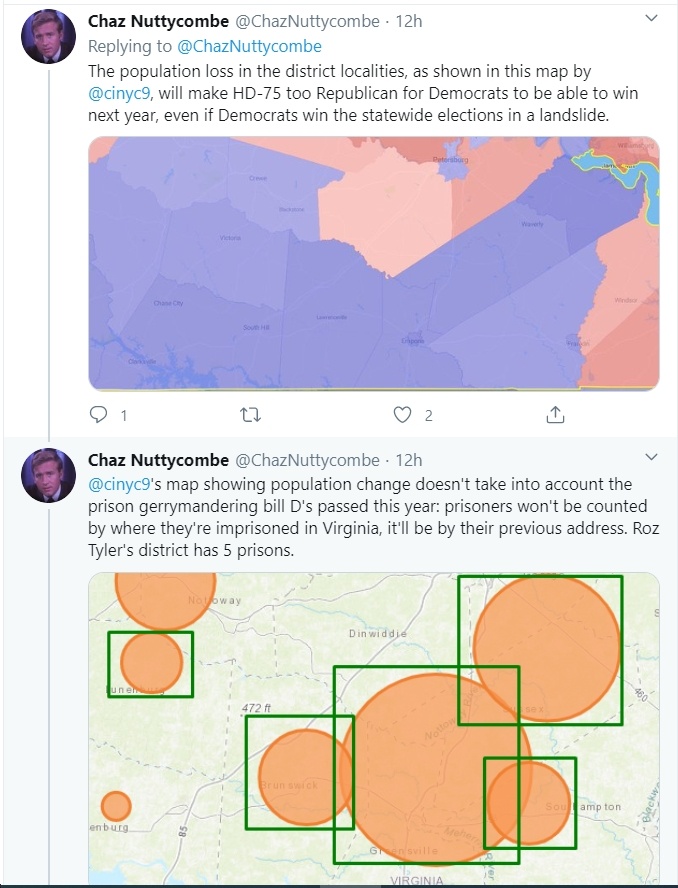
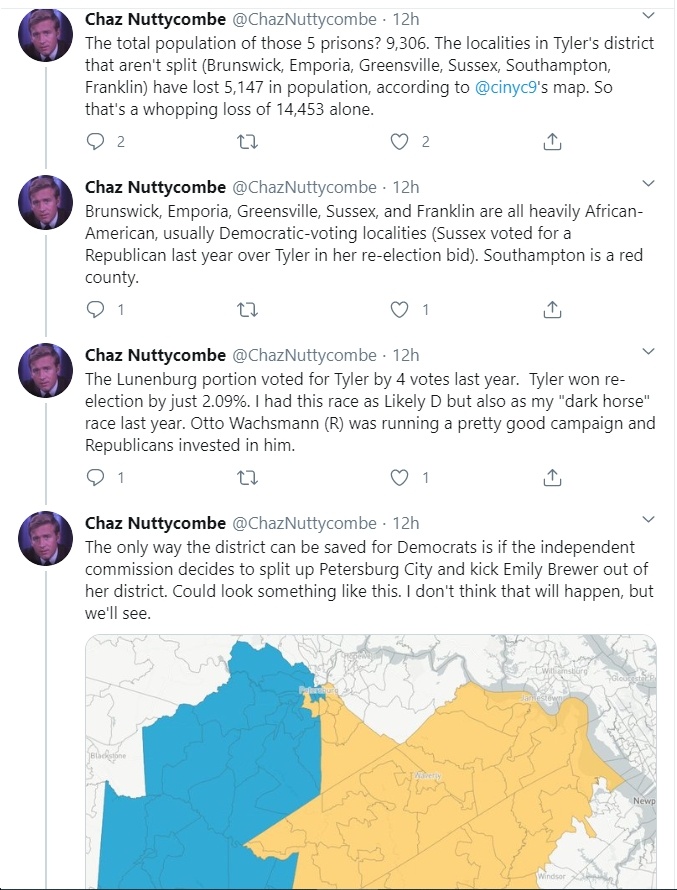
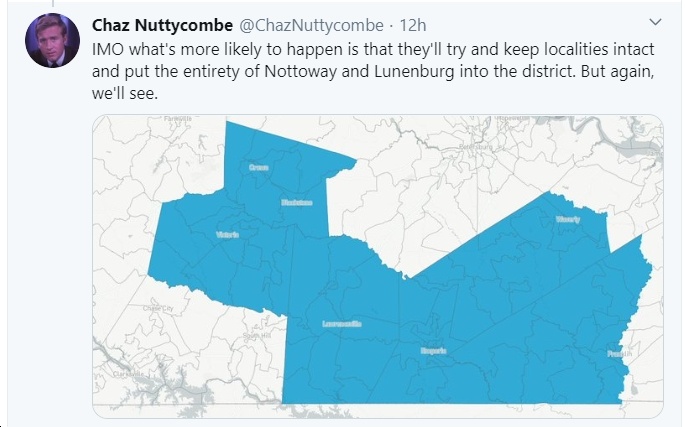
- In the following Twitter thread, Chaz Nuttycombe discusses “some interesting population change in Virginia localities,” using this interactive county population change map by @cinyc9.
- In short, “red”/rural areas of Virginia – Southside and Southwest Virginia – “are going to be losing some seats in redistricting in the 2020s,” due to relative population loss, while “Northern Virginia continues to gain power as more people flock to the ‘blue scissors’ of Fairfax, Prince William and Loudoun.” Interesting stuff, well explained by @chaznuttycombe and @cinyc9 – thanks!
